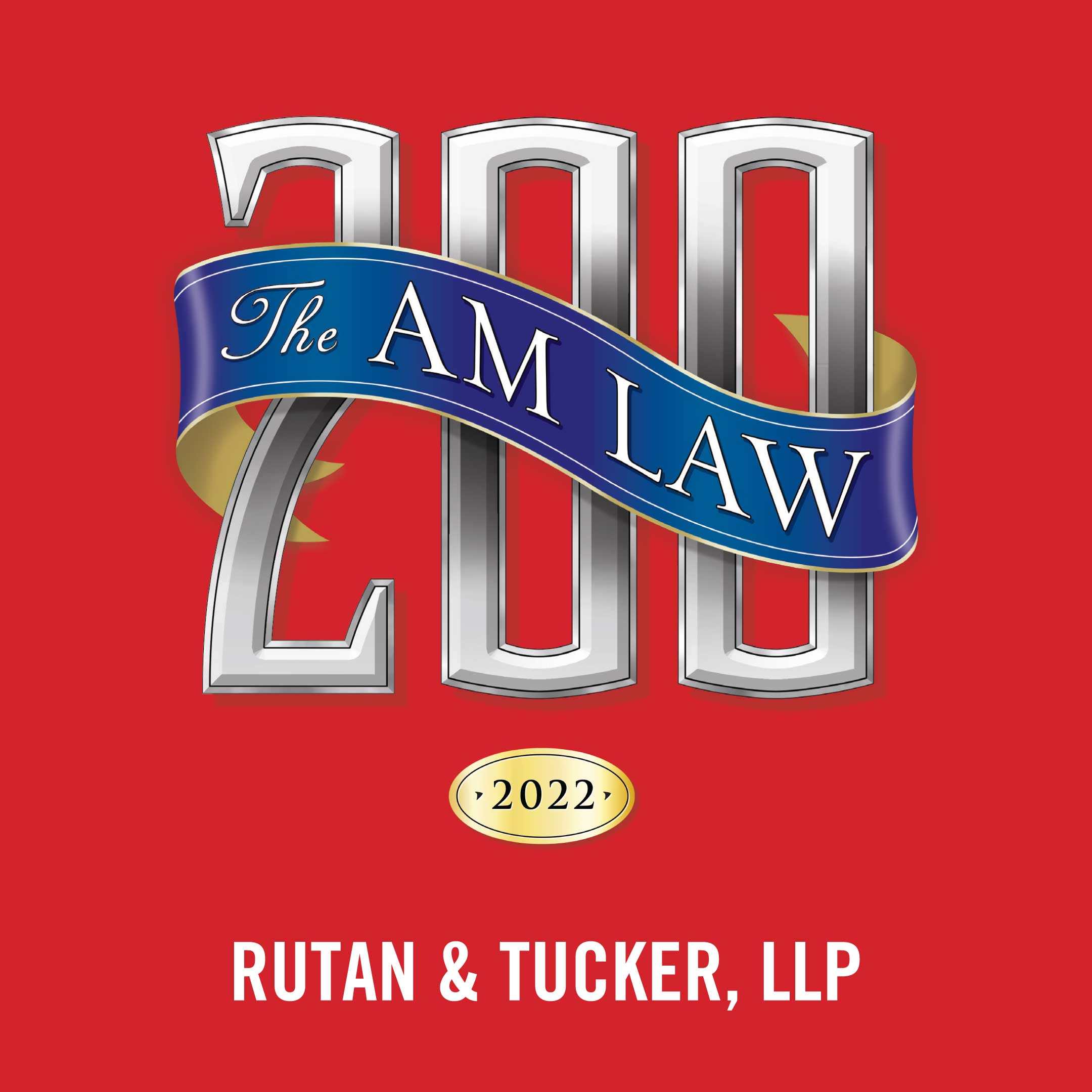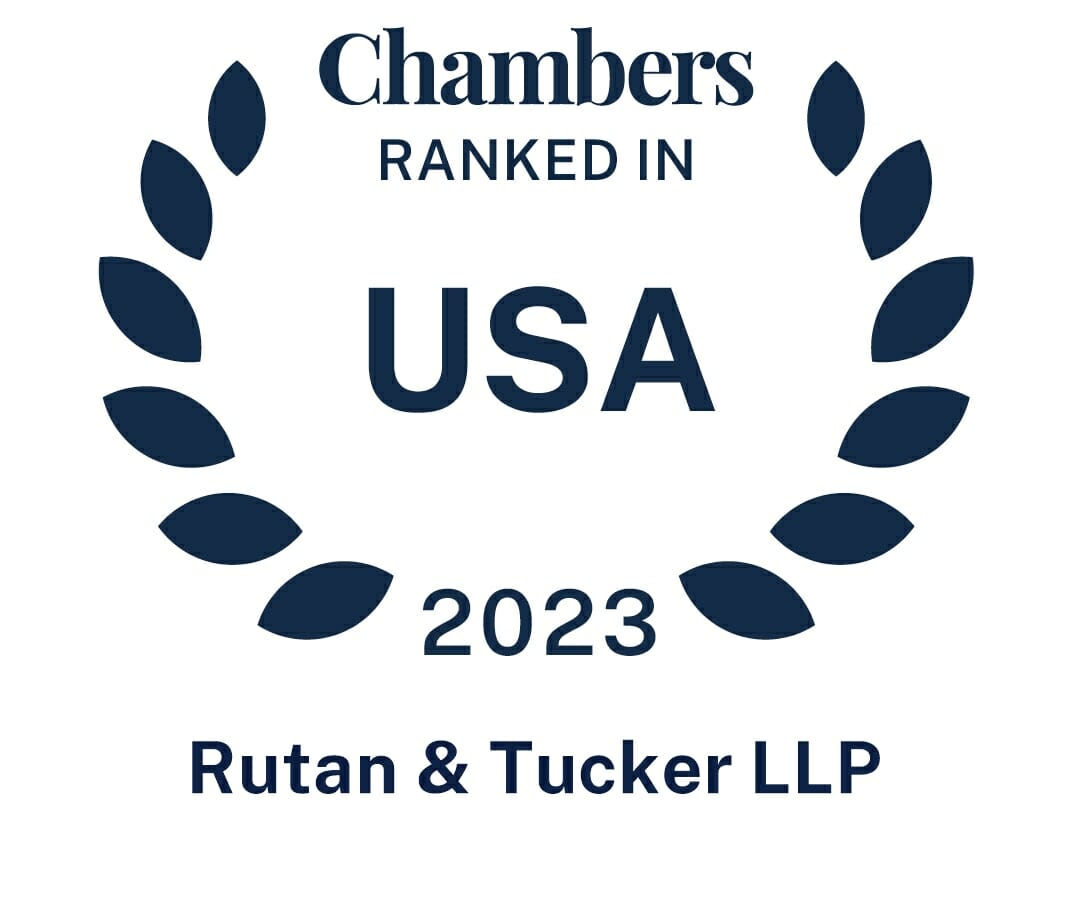Orange County Lawyer Magazine November 2023
“No one is looking for them!” That was the gut-wrenching response we received during a conference call with local human trafficking advocates from Waymakers, Salvation Army, and Public Law Center in the summer of 2022. This call happened a couple of months before the official launch of the Orange County Human Trafficking Project (OCHTP) in September 2022, and the purpose of the call was to identify ways in which the OCTHP could help meet the civil legal needs of human trafficking survivors in Orange County. This response left a deep impression on those of us who were on the call and has been one of the motivators behind the ongoing work of the OCHTP.
This is also one of the many lessons we have learned during this past year: victims of human trafficking in Orange County look very little like the depictions in popular movies or even advertising campaigns. The harsh—and heartbreaking—reality is that victims of human trafficking most often go unnoticed. While popular movies about human trafficking often tell the story of a parent valiantly searching for and ultimately rescuing a child out of trafficking, this almost never happens. Rarely is someone looking for the victims of human trafficking who live in our neighborhoods.
What Is the Orange County Human Trafficking Project?
The OCTHP is a pro bono collaboration between Rutan & Tucker, LLP and UCI School of Law’s Pro Bono Program with a mission to provide pro bono legal services to human trafficking survivors in Orange County and Southern California. We partner with Public Law Center, Free to Thrive, and most recently, ALIGHT, to assist human trafficking survivors with a variety of civil legal needs, including visa needs, post conviction relief, civil ligation, and credit report repair.
Although the OCHTP officially launched in September 2022, it was the result of two years of planning and researching as to how Rutan & Tucker, LLP and UCI School of Law could play a role in filling a void that existed in Orange County for the provision of pro bono legal services for the civil legal needs of human trafficking survivors.
One of the goals of the OCHTP is to provide pro bono legal services in a trauma-informed way—always keeping in mind the incredible challenges our clients have faced and are still facing when they come to us. As such, all volunteers, whether attorneys or students, are required to complete a mandatory training on trauma-informed lawyering before they can help with one of the matters.
What Is Human Trafficking Under the Law?
Federal law does not use the term “human trafficking.” Instead, the Trafficking Victims Protection Act of 2000 (TVPA), along with other federal statutes, uses the term “severe forms of trafficking in persons,” which is defined as: (a) “sex trafficking in which a commercial sex act is induced by force, fraud, or coercion, or in which the person induced to perform such act has not attained eighteen years of age;” or (b) “the recruitment, harboring, transportation, provision, or obtaining of a person for labor or services, through the use of force, fraud, or coercion for the purpose of subjection to involuntary servitude, peonage, debt bondage, or slavery.” 22 U.S.C. § 7102(11). Meanwhile, sex trafficking is defined as “the recruitment, harboring, transportation, provision, or obtaining of a person for the purpose of a commercial sex act.” 22 U.S.C. § 7102(12). These definitions are relevant in most legal actions involving human trafficking survivors.
California law, on the other hand, does use the term “human trafficking.” See, e.g., Cal. Penal Code §§ 236.1 et seq.; Cal. Civ. Code § 52.5. The California Legislature determined that the definition of human trafficking under California law “is equivalent to the federal definition of a severe form of trafficking found in Section 7102(11) of Title 22 of the United States Code.” Cal. Penal Code §§ 236.1(g).
Simplifying these legal definitions, human trafficking under federal law (and state law) is generally understood to have three elements: First, lawyers representing human trafficking survivors have to prove the “process” through which an individual was subjected to human trafficking, which includes one or more of the following: recruitment, harboring, transportation, provision, or obtaining. Second, they have to show the “means” by which an individual was subjected to human trafficking: force, fraud, or coercion, or any combination of them. Third, they have to show the “end” for which an individual was subjected to human trafficking: commercial sex act, involuntary servitude, peonage, debt bondage, or slavery. In most cases, all three elements have to be met to prove human trafficking. However, when the alleged human trafficking relates to a minor who was involved in a commercial sex act, there is no need to show any force, fraud, or coercion.
Helping Survivors Apply for T-Visas
Over the last year, some of our volunteers have worked with human trafficking survivors to help them apply for “T” nonimmigrant status (or, T-visa), which is a special visa that was created for victims of human trafficking under the TVPA. 22 U.S.C. § 7101. Human trafficking survivors who obtain T-visas are permitted to temporarily remain and work in the United States, generally for four years. If they meet certain conditions during the time of their T-visa, survivors may apply for lawful permanent resident status. Notably, qualified family members under the age of twenty-one at the time of the survivor’s application may be eligible to live and work in the United States as “derivative” T-visa holders. 8 C.F.R. § 214.11.
To establish eligibility for a T-visa, attorneys for survivors have to establish the following: (1) The individual is a victim of a severe trafficking in persons (using the definition discussed in the previous section); (2) the individual’s physical presence in the United States is a result of the trafficking; (3) the individual has complied with any reasonable requests for assistance in the investigations or prosecution of the trafficker(s); and (4) the individual would experience severe and unusual harm upon removal. Id.
In one T-visa matter, attorneys from Rutan and UCI law students have been working with a trafficking survivor who was tricked by her mother-in-law into leaving her home country to provide around-the-clock care for her in-laws for minimal pay, including housekeeping duties that were never agreed upon. Notably, our client was also forced to pay back thousands of dollars in what her mother-in-law claimed were our client’s travel costs, without ever informing our client of the costs prior to her arrival in the United States or providing any sort of proof that the costs were actually incurred. As a result, our client was forced to work for almost no pay, well beyond the time period that was agreed upon, out of fear of being returned to her abusive husband in her home country. Using these facts, we were able to file a T-visa application for our client, as well as the client’s youngest son before he turned twenty-one. Now, we wait with our client to receive a determination from USCIS, which generally takes eighteen months to process a T-visa application.
Helping Survivors Clear Their Criminal Background That Resulted From Being Trafficked Using California’s Vacatur Statute
One of the biggest challenges survivors face is gaining meaningful employment, education, public benefits, and housing due to criminal convictions that show up on their background check reports as a result of their trafficking experience. In the last year, our volunteers have begun assisting survivors with having their criminal records (e.g., solicitation, possession of controlled substances, failure to appear, theft, DUI) vacated pursuant to California Penal Code Section 236.14.
Under Section 236.14, survivors who have been arrested or convicted for a nonviolent offense (which is all misdemeanors and most felonies) can petition the court to have the offense vacated. Notably, if the petition is granted, the records are sealed and destroyed, and the individual may lawfully state they have never been arrested, convicted, or adjudicated.
Attorneys assisting survivors with vacaturs will need to prove by clear and convincing evidence that the nonviolent offense was committed while the person was a victim of human trafficking and was the direct result of being a victim of trafficking. See Cal. Pen. Code § 236.14. Additionally, the court must also find that the survivor has made a good faith effort to separate themself from the trafficking.
It is crucial that our volunteers assisting with vacatur matters utilize the highest level of trauma-informed and victim-centered lawyering possible because working on these cases requires countless hours of meeting with the survivor to prepare a declaration explaining how the criminal offenses were a direct result of trafficking. Thus, our volunteers must be cognizant of the client’s emotional and physical cues and understand that reliving their past often results in re-traumatization. Our volunteers must remain attentive to the needs of our client and strive to understand when the client needs a break, whether it be for a few minutes, a week, or even a month.
Fighting for Justice for a Young Woman Against Her Trafficker: Civil Remedies
Under both federal and California law, human trafficking survivors have the ability to file a civil claim against their traffickers. For example, under the Trafficking Victims Protection Reauthorization Act of 2008 (TVPRA), an individual who is victim of a violation of any provision of the TVPRA, including sex trafficking and/or labor trafficking, may bring a civil action against (1) the trafficker; and (2) anyone who knowingly benefits from a violation of the TVPRA (including violations that the individual should have known about). 18 U.S.C. §1595(a). Similarly, under the California Trafficking Victims Protection Act (CTVPA), a victim of human trafficking “may bring a civil action for actual damages, compensatory damages, punitive damages, injunctive relief, any combination of those, or any other appropriate relief.” Cal Civ. Code § 52.5(a). They can also seek attorneys’ fees and costs, as well as treble damages (or $10,000, whichever is greater), and punitive damages. Id. at 52.5(a)&(b).
During the last year, through numerous meetings while working with the brave young woman who was trafficked to the United States by her former mother-in-law, our team of volunteers learned her story and prepared a civil complaint on her behalf, which we filed in the Central District of California in July 2023. Throughout the process, the questions we put front and center in our meetings with our client were: What would justice look like for her? And how can we help her achieve it? Although this case is in the very early stages, we are hopeful that, through the civil litigation, we will be able to help achieve the justice she deserves.
Hosting a Clinic for Survivors to Repair Their Credit Reports
On June 22, 2023, the OCHTP hosted a credit repair clinic for human trafficking survivors under the federal Debt Bondage Repair Act (DBRA). The DBRA was signed into law in December 2021 to allow human trafficking survivors to block certain adverse information from their credit report if it was related to their trafficking experience. See 15 USC § 1681c-3. The final implementing regulations promulgated by the Consumer Financial Protection Bureau, which became effective on July 25, 2022, created the process for consumer reporting agencies to allow human trafficking survivors to block the adverse information they want to block. See 12 CFR §1022.142.
The clinic was designed to give Rutan & Tucker, LLP summer associates a glimpse into the work the OCHTP does. After training our summer associates and other volunteers on the basics of human trafficking, trauma-informed lawyering, and the mechanics of the DBRA, we paired each summer associate with one of our experienced volunteers. The teams then met with clinic participants via Zoom to evaluate their eligibility for relief under the DBRA and prepared the requests to the three major credit reporting agencies (Experian, Equifax, and TransUnion) to block adverse information related to human trafficking experiences.
In the days leading up to the clinic, it looked like we would not have enough survivors participating to allow each team of volunteers to meet with at least one survivor. All that changed on the day of the clinic when twenty-two human trafficking survivors signed into the Zoom meeting to participate in the clinic, meaning each team of volunteers actually met with at least two survivors during the clinic. While we were not able to help every individual who participated in the clinic, for those individuals who were able to provide the required documentation for our teams to confirm their eligibility for relief under the DBRA, we have been able to successfully request that adverse information be blocked from their credit reports.
When our teams delivered the good news to trafficking survivors that the adverse information, which had been negatively affecting their credit scores, had been removed, the responses have included immense gratitude. Survivors have shared with us how deeply their ability to rebuild their lives had been impacted by the negative information on their credit reports, which resulted in challenges to obtain housing, purchase a vehicle, and do any of the other things that require good credit. Some were even moved to tears upon learning that they now had a clean credit report. One client even wrote to a Rutan attorney, “I always wanted to be an attorney, so just know that I am admiring from afar as a woman who empowers others. Again I am so grateful to have you on my side.” We are confident that this client will be a fierce advocate for others in the future, regardless of whether she pursues a career in the legal field, and we are truly honored to play even the smallest role in her ability to begin a new life.
There are many lessons we learned through the DBRA clinic and its aftermath, but the most significant one is that helping a human trafficking survivor does not always require months or even years of walking with them through the T-visa process, the vacatur process, or civil litigation. It can be as simple as spending a few hours going through a survivor’s credit reports with them, preparing the requests to the credit reporting agencies, and minimal follow-up. Despite this limited amount of work compared to other pro bono projects, our volunteers still have the opportunity to make meaningful and positive impacts on the life of a survivor. This means that anyone willing to commit these few hours can participate in one of our future clinics.
The Future of the OCHTP
If someone had told us that our volunteers would work with twenty-eight human trafficking survivors in the first year of the project, we would have thought this an impossible prediction. There were several calls with Anna Davis at UCI in the summer of 2022 in which we wondered whether we would have even one or two matters available for our volunteers to work on when the project launched in September 2022. A year later, another key lesson we learned is that the interest in the pro bono legal services we offer is far greater than we could have anticipated.
Looking into the future, we hope that Year One will only have been the first step in creating a pro bono collaboration that will eventually be able to meet all the various civil legal needs of human trafficking survivors in our county. We hope that we will be able to form meaningful and continued partnerships with both in-house lawyers and lawyers from other law firms who bring expertise to the table in areas we don’t currently have, such as family law, dependency law, and probate law. The goal is to be able to offer human trafficking survivors the best comprehensive legal representation available in Orange County (and beyond) at no cost to the survivors.
Finally, we hope that in the years to come the OCHTP can play a role through strategic civil litigation in disrupting the astonishing flow of money to and from Orange County associated with human trafficking that makes our county such a hotbed for human trafficking. We hope that the OCHTP can lead a united Orange County legal community in the legal fight against human trafficking in all its forms in our county.
Peter Hering is a partner in Rutan’s Employment Law Section. He also manages to the OC Human Trafficking Project. Peter can be reached at phering@rutan.com.
A. Star Leal is an associate in Rutan’s Government and Regulatory Law Section, and also represents human trafficking survivors as part of the OC Human Trafficking Project. She can be reached at sleal@rutan.com.
This article first appeared in Orange County Lawyer, November 2023 (Vol. 65 No. 11), p. 25. The views expressed herein are those of the author. They do not necessarily represent the views of Orange County Lawyer magazine, the Orange County Bar Association, the Orange County Bar Association Charitable Fund, or their staffs, contributors, or advertisers. All legal and other issues must be independently researched.



